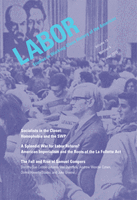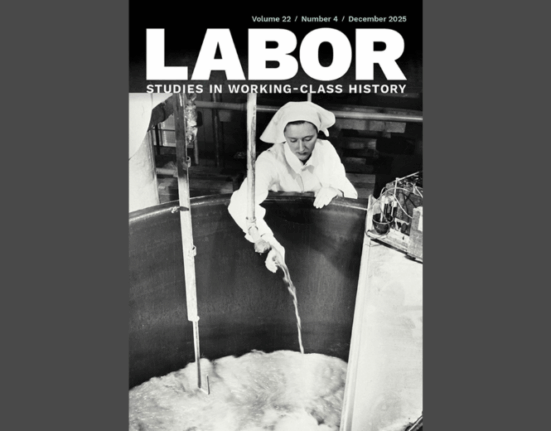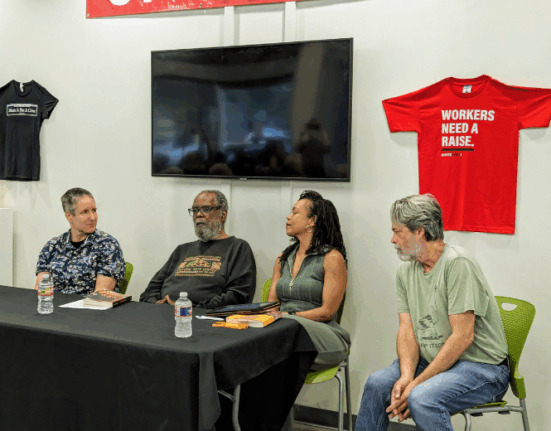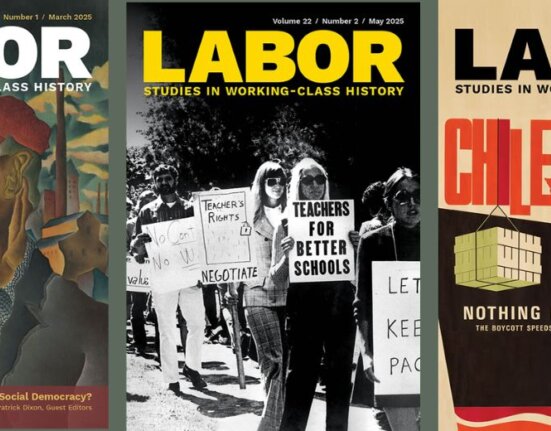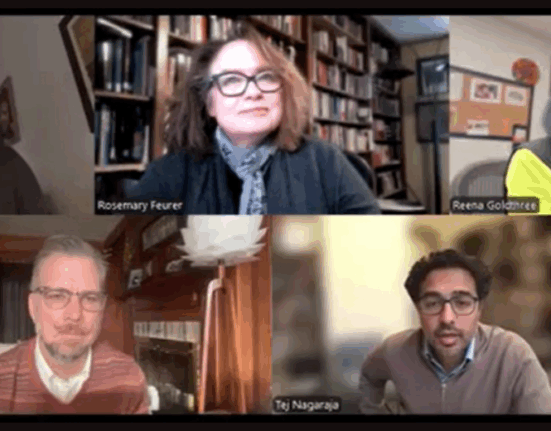In This Issue
The Common Verse
- Phillip Bannowsky, “The Yard“
LAWCHA Watch
- Shelton Stromquist, “President’s Perspective: Looking Forward from New York“
Articles
- Christopher Phelps, ““The Closet in the Party: The Young Socialist Alliance, the Socialist Workers Party, and Homosexuality, 1962 – 1970”
During the 1960s, the Young Socialist Alliance (YSA) and Socialist Workers Party (SWP) were highly active in the movement against the Vietnam War and other social movements in the United States. Between 1962 and 1970, their leaderships sought to exclude homosexuality from their ranks. Using all available documentation, oral history, and correspondence, this article reconstructs for the first time how SWP and YSA members attracted to others of the same sex were either pushed out of the movement or compelled to circumvent the policy by building closets. By drawing on recent scholarship on the “straight state” in the United States, it explains that these socialist groups moved to bar same-sex sexuality because the state had incited both security concerns (fears that the government would pressure arrested homosexuals to become federal informants) and cultural anxiety (fears that “bohemian” styles would alienate American working-class recruits from socialism). It compares YSA and SWP policy to those of other leftist and working-class parties and organizations, including the Communist Party and Maoist and New Left organizations. After coming under strong external criticism by the gay and women’s liberation movements, the YSA and SWP abandoned their antigay membership restriction in 1970. They therefore exemplify both the institutional suppression of homosexuality at midcentury and the transformations in civic and political culture generated by the gay liberation movement.
- Justin Jackson, ““The Right Kind of Men”: Flexible Capacity, Chinese Exclusion, and the Imperial Origins of Maritime Labor Reform in the United States, 1898 – 1905”
While the La Follette Seamen’s Act of 1915, a landmark Progressive Era labor law, is often understood as the culmination of a heroic campaign for industrial efficiency, consumer safety, and workers’ rights, its origins lie in the political milieu of the Spanish-American War. When the 1898 war exposed critical resource shortages in the domestic American maritime industry on which the US navy had traditionally depended in wartime, white seamen’s unionists and their Democratic allies in the US Congress sought to turn concerns about maritime and naval weakness into a political strength. They stressed a nineteenth-century institution of flexible capacity, in which private industry had furnished the vessels and men that allowed the US navy to temporarily expand for war, to legitimate and pursue their legislative goals. Dominated by white, European-born immigrants jealous of their jobs and wages in a rapidly industrializing global industry hiring more nonwhite and low-wage seamen in foreign ports, the unions and their allies linked a nationalist politics of maritime and naval crisis to a nativist and racist politics of immigration and citizenship in order to drive Chinese and other Asian seamen from private and US military vessels in the Pacific. By 1905, changes in the industry, ship technologies, and naval manpower eroded the navy’s older reliance on commercial vessels and seamen. Yet an imperial politics of flexible capacity left a mark on maritime labor reform and its crusade to exclude Chinese workers from American vessels that endured at the heart of the La Follette Act.
Up for Debate
- Dorothy Sue Cobble, “Pure and Simple Radicalism: Putting the Progressive Era AFL in Its Time”
Dorothy Sue Cobble’s “Up for Debate” retrospective on the early American Federation of Labor heralds a new era of scholarship connecting labor history to larger judgments about American institutionalism — be it business, politics, the law, or ideology. Cobble reclaims both the complexity of AFL structure and its oppositional stance to market fundamentalism from what she claims (à la E. P. Thompson) from the condescension of history: ultimately, she wants to reconsider the federation as “part of a progressive political tradition on which future generations of reformers can build.” The range of responses from four distinguished commentators suggest just how “radical” (to use a term contested throughout the exchange) Cobble’s revisionist turn is. Melvyn Dubofsky, for example, who had once accepted the conventional “business unionism” dismissal of the AFL, now ventures halfway in Cobble’s direction: the early AFL, he allows, may well have been more pluralist and politically contentious than previously recognized; however, there was a “darker” side of intolerance and missed opportunities that grew worse through the 1920s. Andrew Wender Cohen not only reaffirms Cobble’s central claims regarding the de facto mixed-skill nature of the AFL, but goes further to emphasize its city-based struggles for workers’ control. Altogether, the federation, he suggests, was at once a defining historical force in the period and of “vital” benefit to working people. Donna Haverty-Stacke prefers to interrogate further the very framing of the AFL across time. Just how and why labels like “pure and simple” and “conservative trade unionism” were created and “how they functioned” offer an agenda, she suggests, for further research. Within this forum, Julie Greene is the least inclined to accept Cobble’s main premises. Although she welcomes renewed attention to the AFL’s more innovative aspects, she insists that the federation be judged in relation to actually existing contemporary alternatives. In such light — particularly with attention to an incessant AFL attack on the Labor Left and support for US imperialism — the claim for AFL “radicalism,” in her view, appears far-fetched. Cobble responds with a gracious but full-throated defense of her core arguments.
- Melvyn Dubofsky, “Were Gompers and the AFL Radical?“
- Andrew Wender Coheny, “Resisting Judgment“
- Anna Clark, “E. P. Thompson and Domestic Service“
- Donna T. Haverty-Stacke, “Rethinking the Progressive Era AFL: Not Just What, but How and Why“
- Julie Greene, “Not So Simple: Reassessing the Politics of the Progressive Era AFL“
- Dorothy Sue Cobble, “Response“
In Memoriam
- Nelson Lichtenstein, “Robert H. Ziegler“

